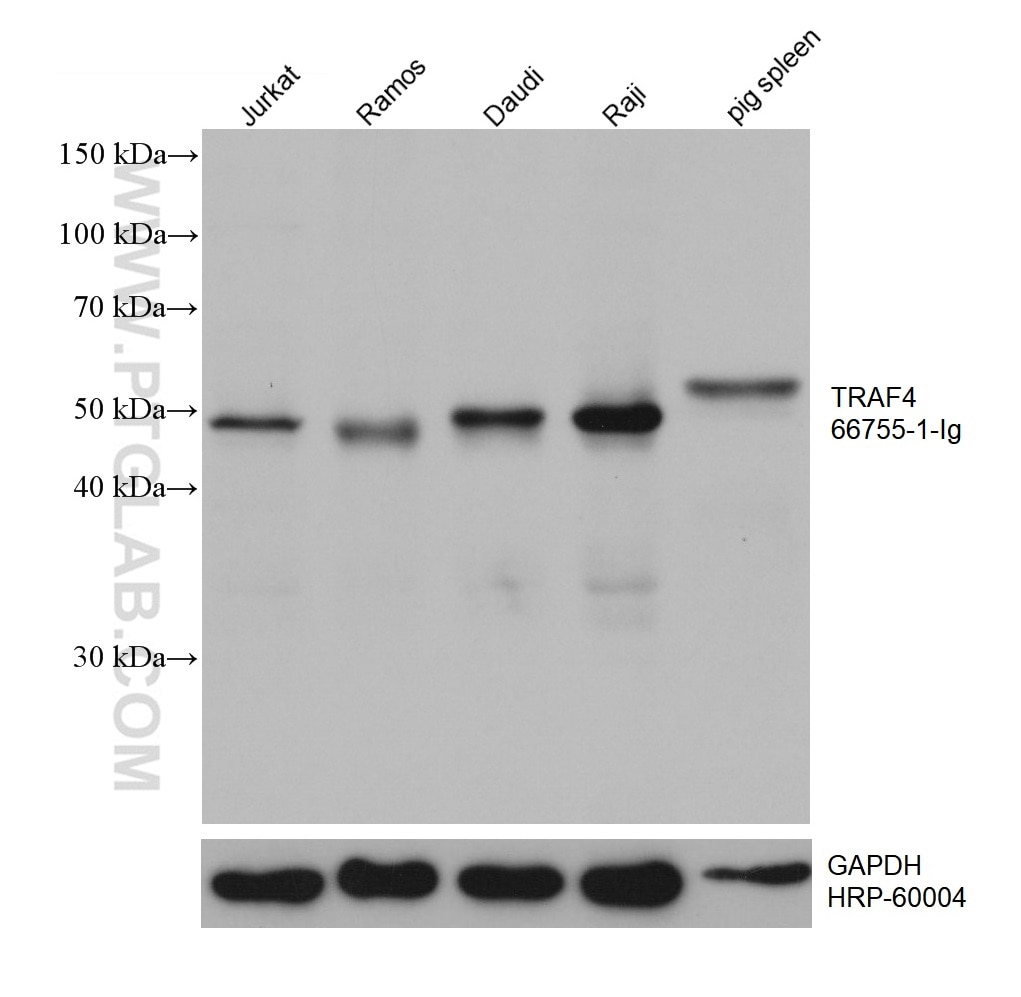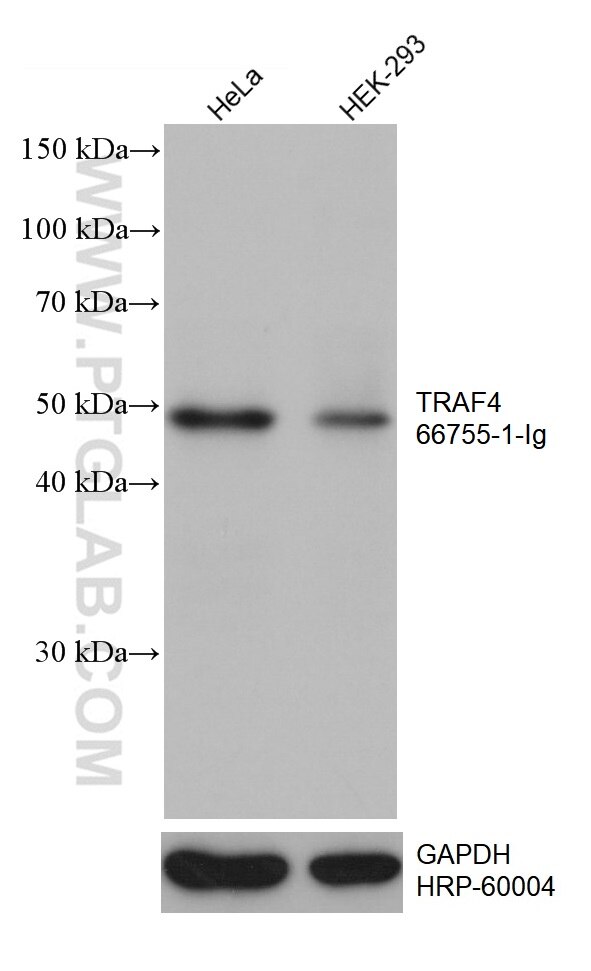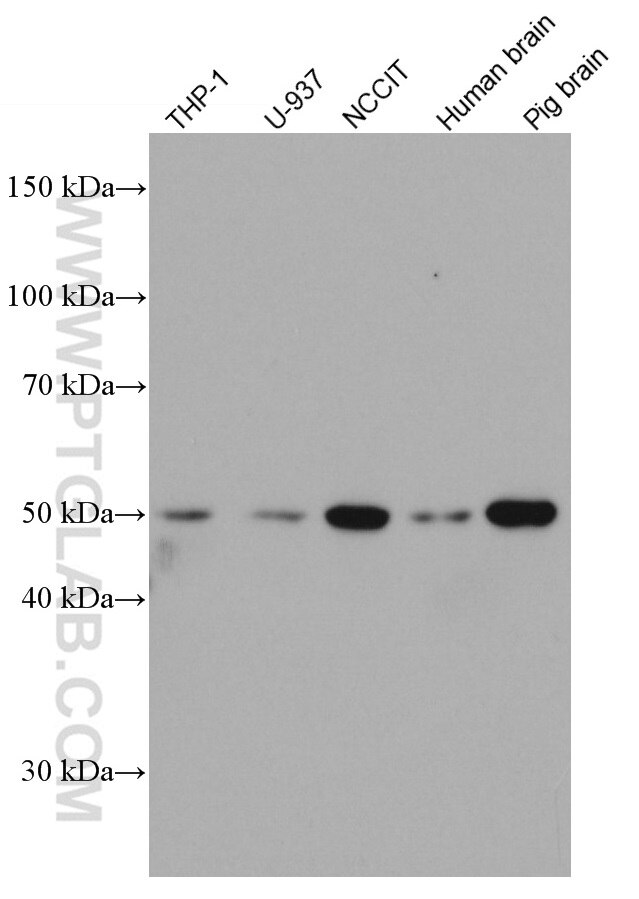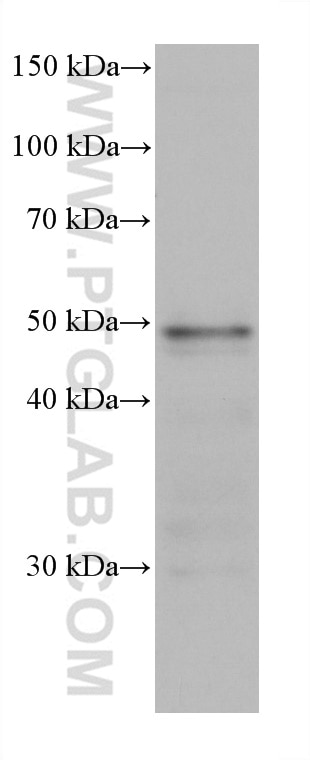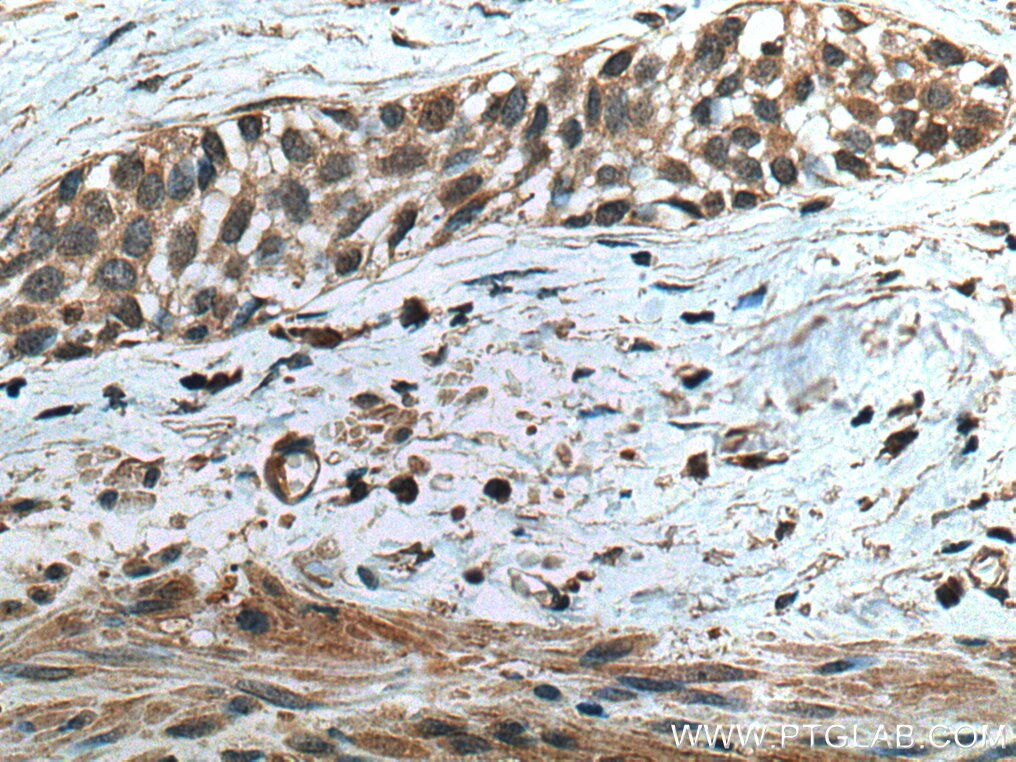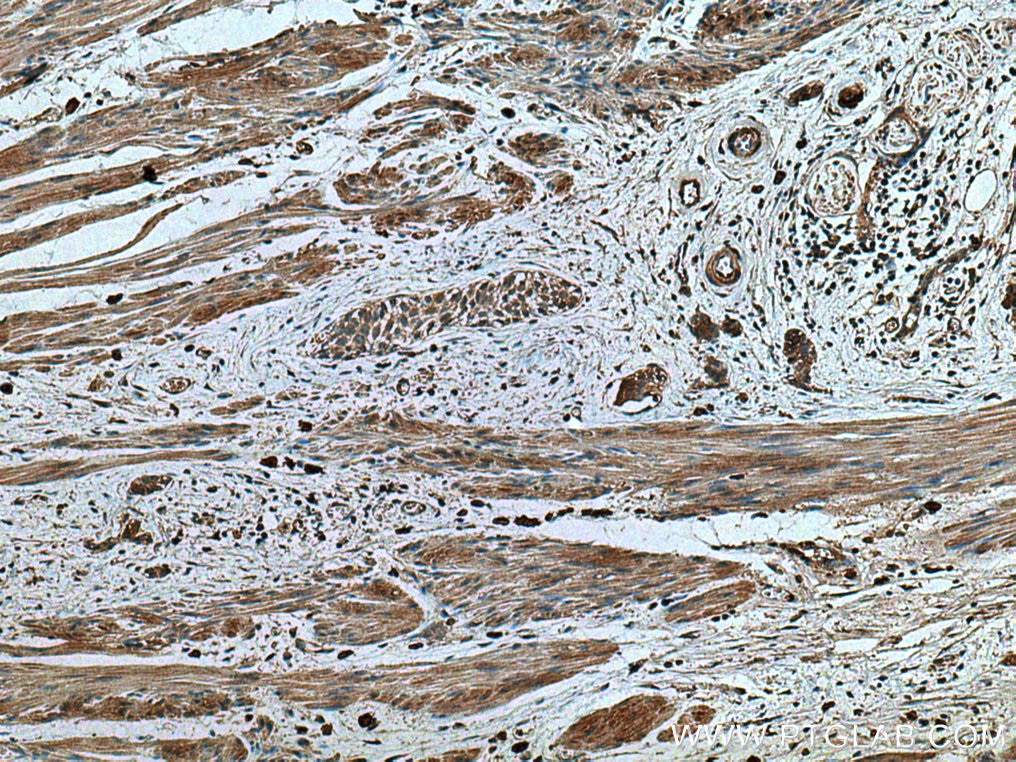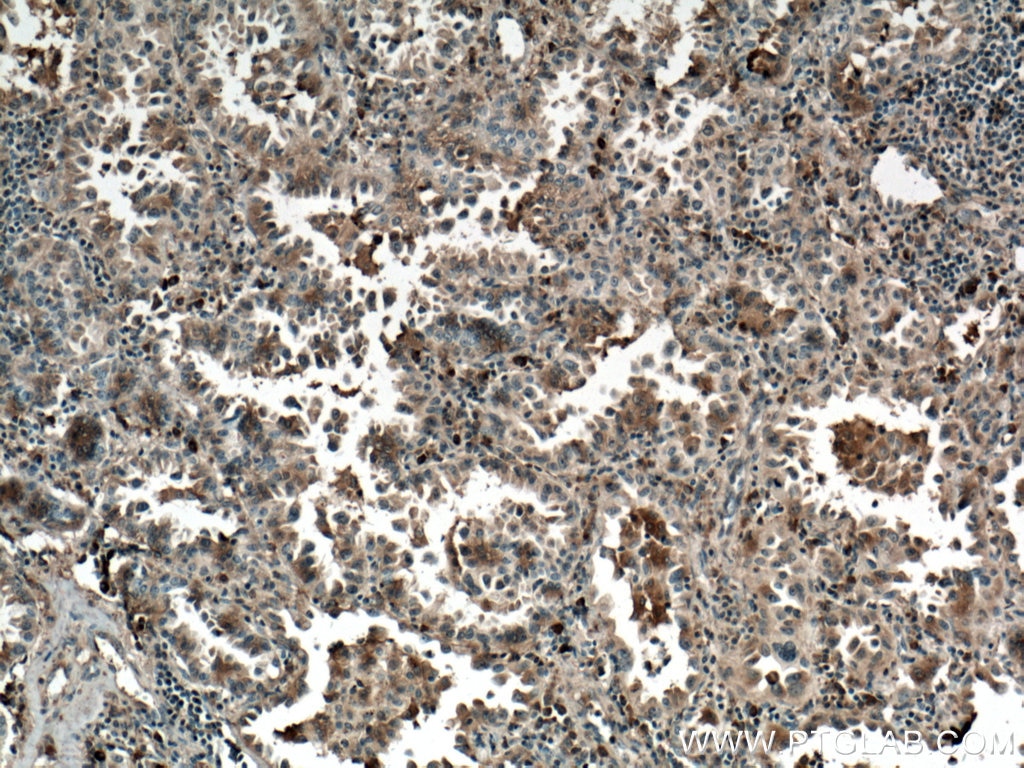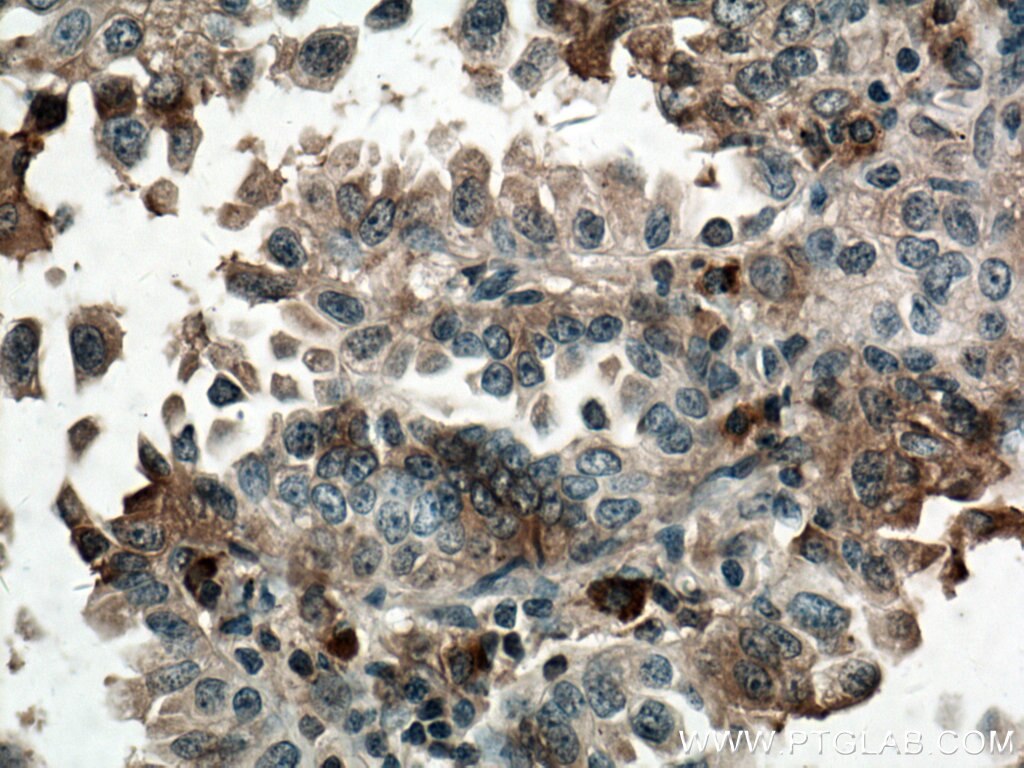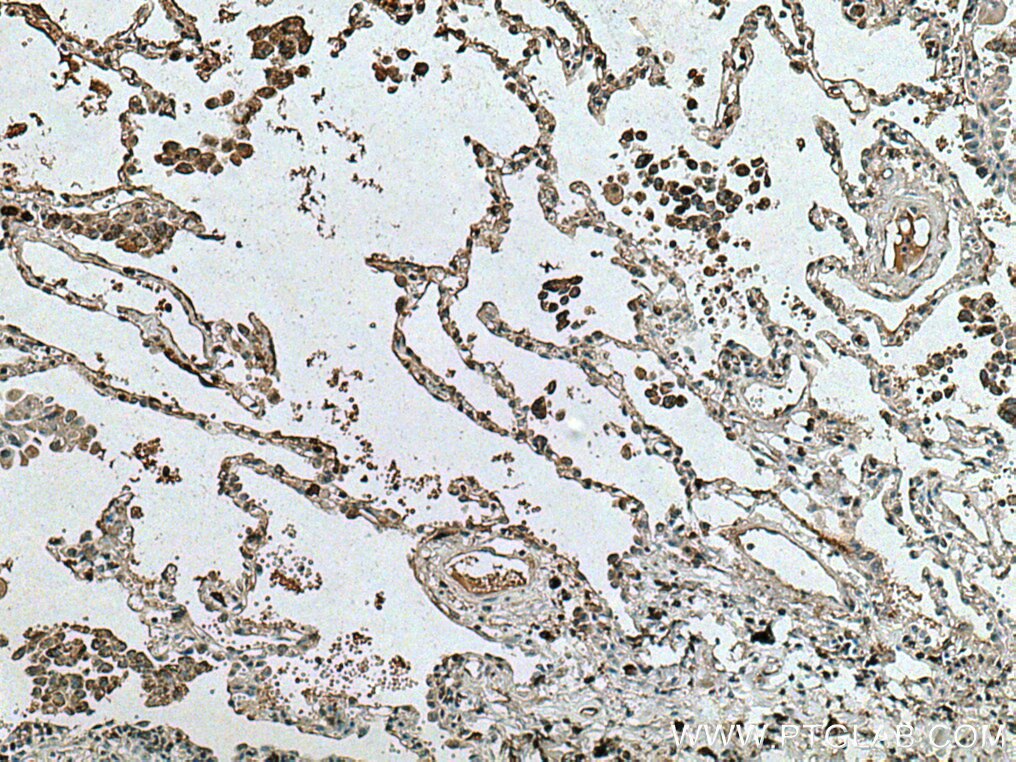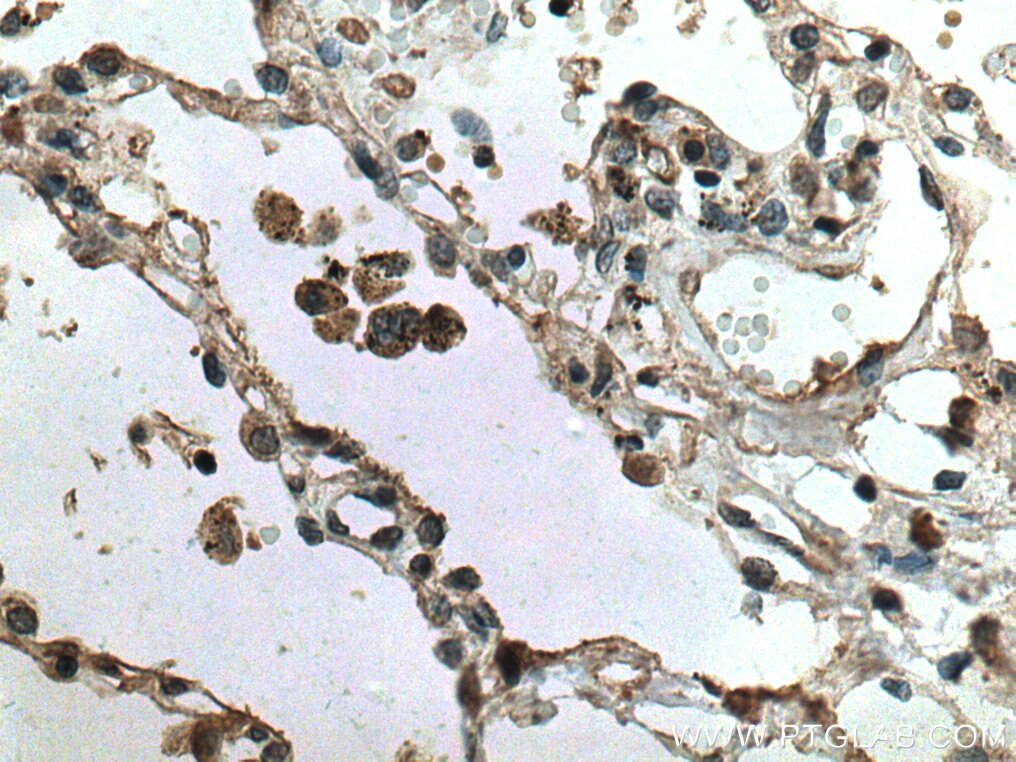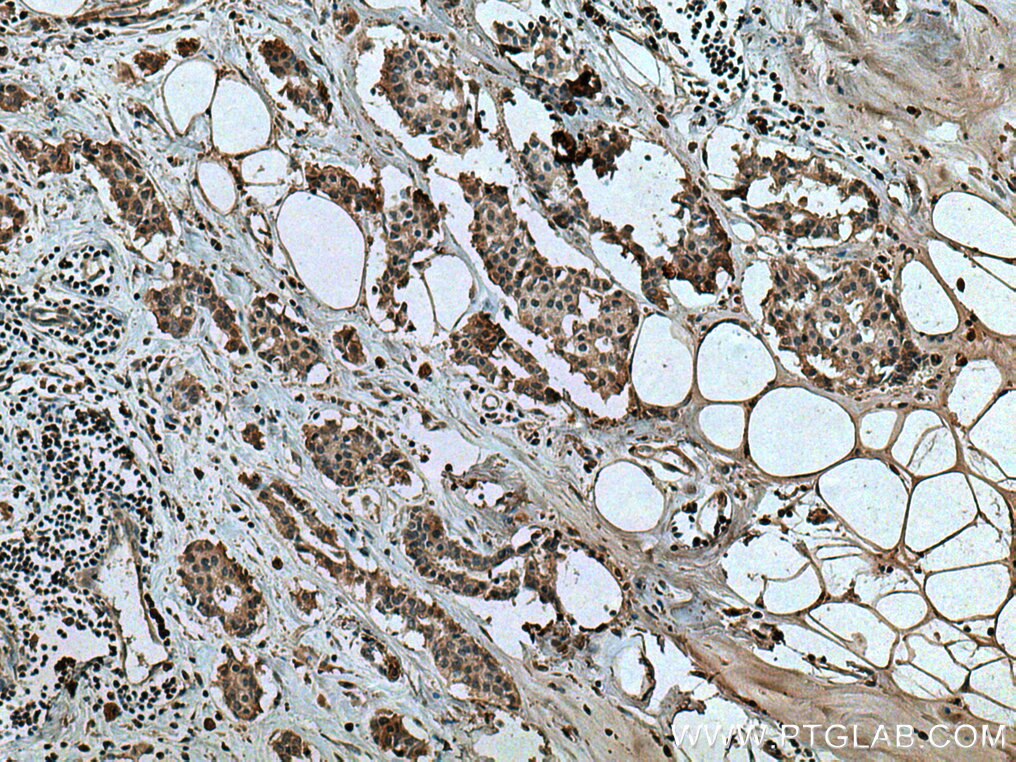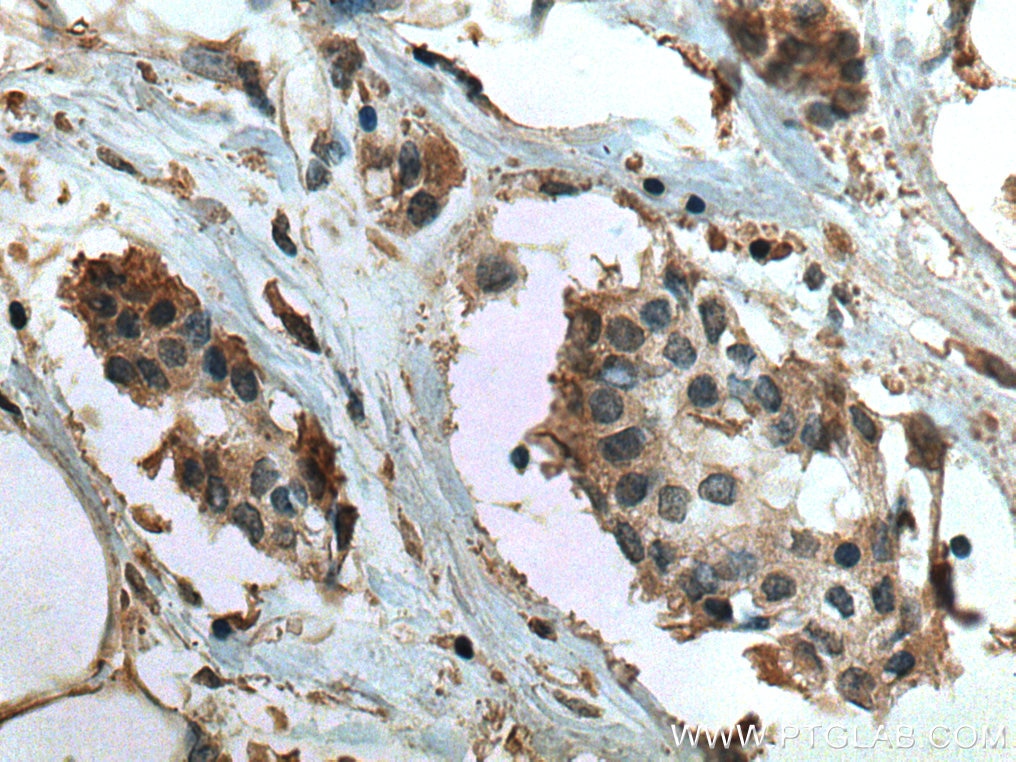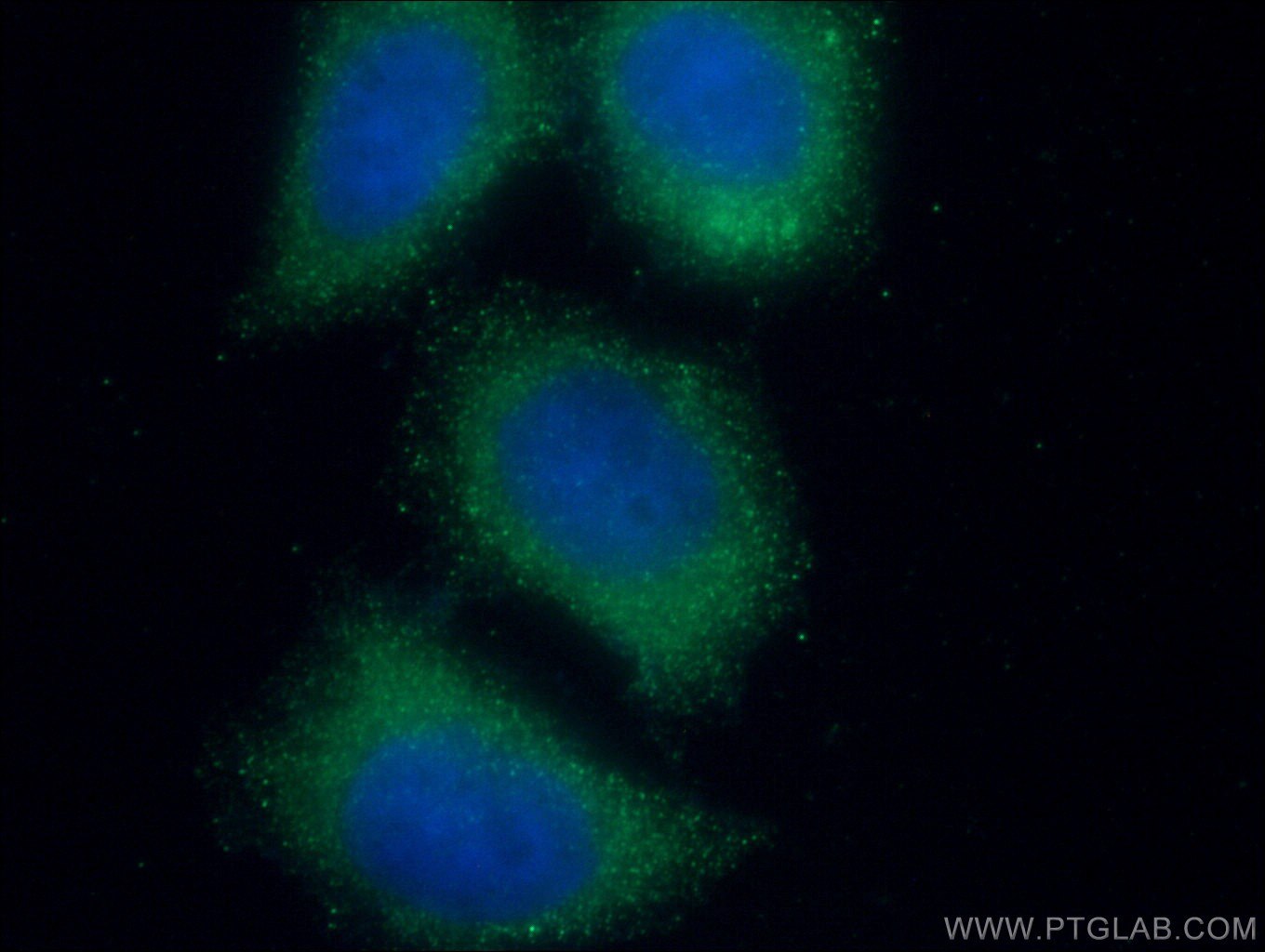- Phare
- Validé par KD/KO
Anticorps Monoclonal anti-TRAF4
TRAF4 Monoclonal Antibody for WB, IHC, IF/ICC, Indirect ELISA
Hôte / Isotype
Mouse / IgG1
Réactivité testée
Humain, porc
Applications
WB, IHC, IF/ICC, Indirect ELISA
Conjugaison
Non conjugué
CloneNo.
2C9A11
N° de cat : 66755-1-PBS
Synonymes
Galerie de données de validation
Informations sur le produit
66755-1-PBS cible TRAF4 dans les applications de WB, IHC, IF/ICC, Indirect ELISA et montre une réactivité avec des échantillons Humain, porc
| Réactivité | Humain, porc |
| Hôte / Isotype | Mouse / IgG1 |
| Clonalité | Monoclonal |
| Type | Anticorps |
| Immunogène | TRAF4 Protéine recombinante Ag27221 |
| Nom complet | TNF receptor-associated factor 4 |
| Masse moléculaire calculée | 54 kDa |
| Poids moléculaire observé | 50-54 kDa |
| Numéro d’acquisition GenBank | BC001769 |
| Symbole du gène | TRAF4 |
| Identification du gène (NCBI) | 9618 |
| Conjugaison | Non conjugué |
| Forme | Liquide |
| Méthode de purification | Purification par protéine G |
| Tampon de stockage | PBS only |
| Conditions de stockage | Store at -80°C. 20ul contiennent 0,1% de BSA. |
Informations générales
The tumor necrosis factor receptor-associated factor (TRAF) family, consisting of seven members (TRAF1-7), is a group of signaling adaptors which participate in various signaling pathways through binding of the tumor necrosis factor receptor superfamily. As one of the important member of TRAF family proteins, TRAF4 was initially isolated from breast carcinomas and identified as the first member of the TRAF family to be up-regulated in human carcinomas. TRAF4 is required during embryogenesis in key biological processes including the formation of the trachea, the development of the axial skeleton, and the closure of the neural tube. TRAF4 deficiency leads to severe developmental alterations.
